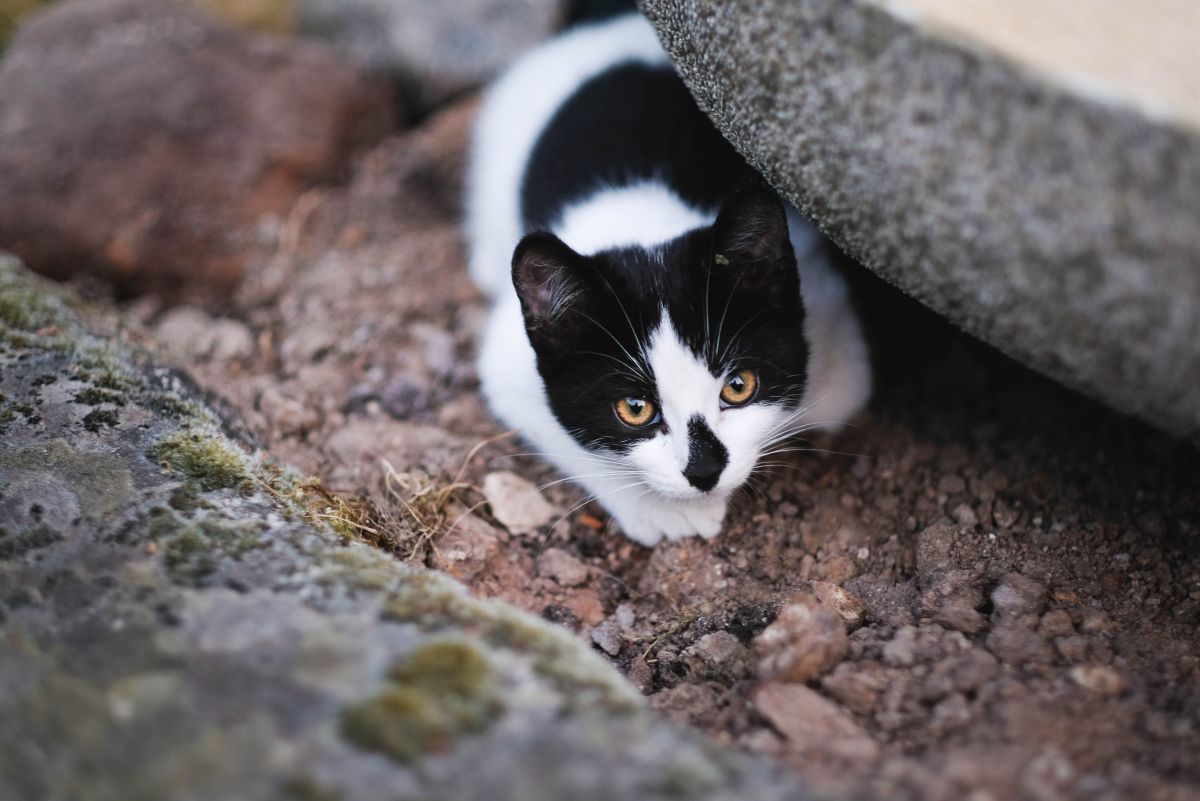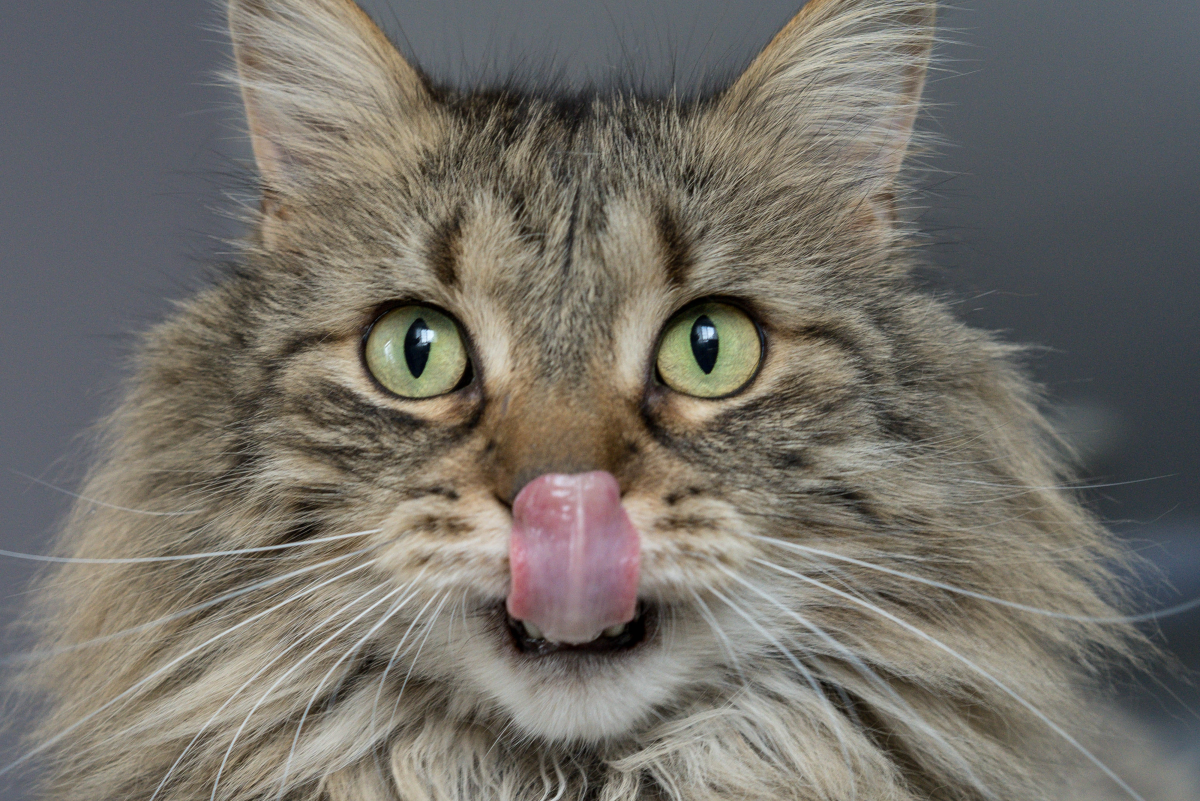Caring for your New Kitten
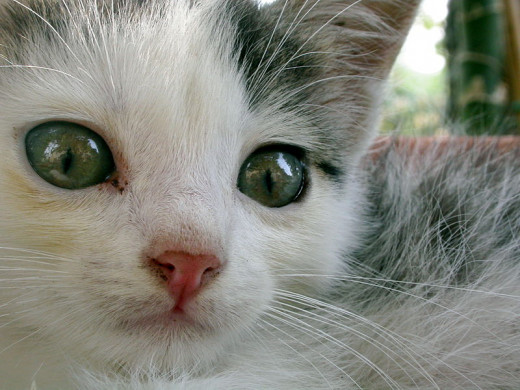
So, you just brought home your first kitten.
Everybody loves kittens! They are very cute, cuddly and love to play!
Whether it be the very first cat you’ve ever owned, or you are just new to bringing home cats that young, you should know a few things.

The sensitive period…
There is a so called “Sensitive Period” for kittens between the ages of 2 weeks and 7 weeks. What this means is that, during these 2-7 weeks of their life, they are greatly influenced by their surroundings and the people and animals involved. Yes… kittens are always going to be influenced by these things, however during this specific time frame it is increased greatly.
By the time you go to adopt your new kitten, most of this “sensitive period” will have elapsed, but that doesn’t mean that its completely gone. It just means that you have to take into consideration where your kitten has been before you adopt. If you go to a shelter where he/she has not been taken care of, the cute little feral kitten growling in the corner might not be so cute when he’s an adult.

Do NOT punish your kitten for doing bad things…
Cats do not associate punishment the way humans and dogs do. Instead, reward your kitten for doing good things. He/she will soon catch on that this is the type of behavior that you expect from them, and they will continue to do those things.
The only sort of punishment that might be remotely acceptable, is setting up a ‘booby trap’ of sorts to prevent your cat from doing what you don’t want it to. Think back to my article “14 Fun Facts You May Not Know About Cats”, the video at the very bottom of the page. There is a particular cat that tries to jump up onto its owners counter, but when he does, all of the dishes (and whatever else they had on the counter) flies up and startles the cat. This will teach the cat not to jump onto the counter.
Even though it’s considered acceptable, I still wouldn’t do it to my kitties.
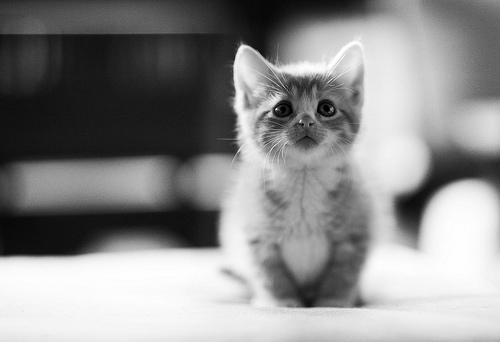
Be patient with your little one…
It is very important that you are patient with your new kitty. He or she is still adapting to living with you and needs time to understand what it is you like for him to do, and what you don’t like for him to do.
Don’t be discouraged when your ‘training’ techniques don’t work the first time, it may take many, many attempts to get it to sink in.

Kitten parties!
If you have friends or neighbors with whom have kittens that your little one has not been introduced with yet, you may want to arrange a play date. You might want to avoid having too many people and cats over, because that might overwhelm your new kitten and make him scared. I would suggest the first few times have 1 person over with one kitten and stay for a couple hours.
Watch a movie and have your friend hold your kitten from time to time. Bring the two kittens together into a room with a few cat toys and have them get to know each other. If this is the very first meeting be sure to keep a close eye on them and make sure they don’t hurt one another. However, also be sure to learn the difference between playful wrestling and actual fighting.
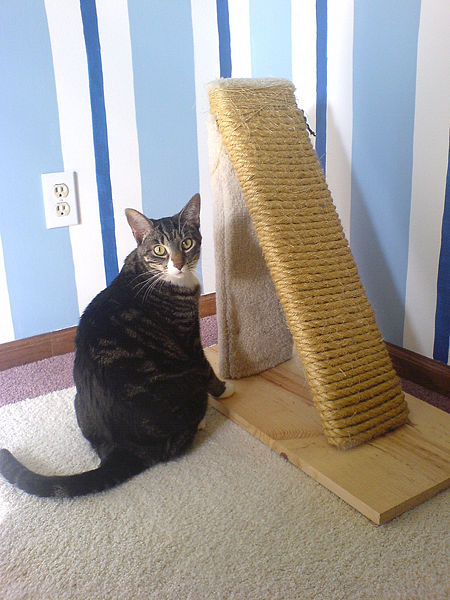
Why do cats scratch? What do I do about it?
All cats and kittens scratch, its natural instinct. Your new kitty is terrorizing your favorite couch and chair… so what do you do? First off, I would never recommend getting your cats declawed. It is very painful for them, and could cause serious problems for your cat. More info on declawing in an upcoming article, so keep an eye out for that if you are interested in reading it!
First off, when you have any cat in the house you need a scratching post for them. Get one post for every cat. If you are training your new kitten to use the new scratching post, you should place it next to the furniture that he has been scratching on. For the first week, pick your kitten up and take him to the post. Gently rub his paws and place them on the post. He will eventually pick up that you want him to scratch this item. Also, try putting a little bit of catnip on the post to draw his attention. After about a week has passed, move the post away from the couch about a foot. After another week, move it another foot. Keep this pattern up until you get the post in your desired location and your kitten will follow.
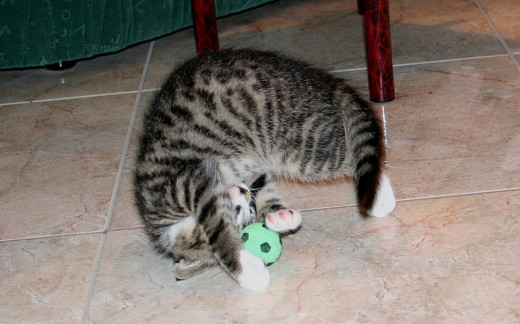
Playing with your kitty…
Kittens love to play, and we love to play with them. So, what are some good playing activities and patterns for our kittens?
You should get a wide range of toys for your kitten to play with. I’ve found that pretend mice, wands, the little balls with bells in them, and anything with feathers on it work well with my kitten. I purchased this one particular toy for her. I can’t remember what it was called. However, it had a solid base but could ‘tumble’ around, and it had feathers sprouting from the top. My cat absolutely adored this toy and would play with it for hours.
Keep in mind, though, that cats can get bored of their toys quite easily. After playtime you should put the toys away and wait to bring them out again until its playtime. If you constantly leave out all of the cats’ toys, they will start to become boring to the cat and they won’t want to play with them anymore, and will start to terrorize your house.
You can try to make a toy pretend like it’s a mouse or a bird to catch your cats attention. If your cat seems un-amused by some of your playing techniques you may have to experiment and see what your cat likes to do when playing. It sometimes works with my cat if we dim the lights and allow her to ‘play hunt’, since cats like to hunt in the dark. Also, let your cat win. Make it difficult, but after a while let him finally get a successful pounce. He’ll get that feeling of accomplishment and victory.
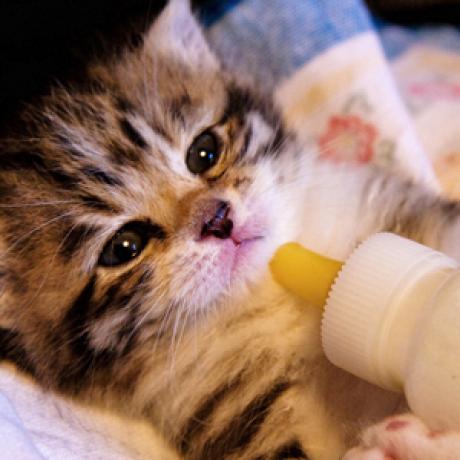
Feeding newborn kittens...
When caring for your new kitten you want to make sure they get the best food and care so that they can grow up into a strong and healthy adult cat! A kitten grows really fast in its first months, so it needs the nutrition to supplement this growth. Most experts recommend that you feed your kitten specifically formulated kitten food for the first year. Cat food that says that it’s also suitable for kittens will not suffice. Also, make sure your kitten gets plenty of fresh water! To get the absolute best kitten food, look for a name brand that features this on the bag: “Complete and balanced nutrition for kittens based on AAFCO feeding trials.” This will ensure that the food you have bought will contain everything that your cat needs as far as nutrients go.
It’s important that your kitten is fed both canned and dry food. Since very small kittens have very small teeth, it is hard for them to chew on hard food and it’s not a good idea to give them only dry food. If you are feeding your kitten both canned and dry food, feed them the canned food twice a day. If you are feeding them with ONLY canned foods, feed then four times a day.
When a kitten is very young, it’s okay to keep food out constantly so that your kitten can eat when he/she needs to. When your kitten gets around to the age of 4 months or 6 months, then you can transition to “meal time” feedings. Also note that when you get your cat spayed or neutered, it’s especially important to watch your feedings, because the risk of becoming obese increases during this time.
Check out my other hub about cats!
- 14 Fun Facts you May Not Know About Your Cat!
This page includes information about cats that you may not know about. Amazing animal facts! Funny cat pictures, too!
When exposing your kitten to new foods…
Do NOT mix in the new food and old food. I was told this by the shelter that I adopted my kitten from but this is actually a bad idea. This is because, if you mix the old kitten food with a new kind, and your kitten doesn’t like the new food, he/she can be set off by the old kind too. Think of it like this… If you are a cheeseburger fan but absolutely hate mustard, you are going to request no mustard on your burger. If you go to McDonald’s and they put mustard on your burger, you aren’t going to eat it because the flavors are already mixed. So, instead, put the foods in two separate bowls and over time start using less and less of the old food.
It is also okay to give your kitten little treats now and then. I’ve read that you need to make sure that you follow the “10% calorie rule”. This means that treats should make up less than 10% of your kittens total calorie intake. But do not give your kitten leftover table scraps.
Raw meat or liver can contain parasites. Raw eggs may contain salmonella. Raw fish may lead to vitamin B deficiency. Also, milk may cause diarrhea in weaned kittens and cats because they lose the enzyme needed to break down milk. So, it would be advised to avoid these foods for your kitten.
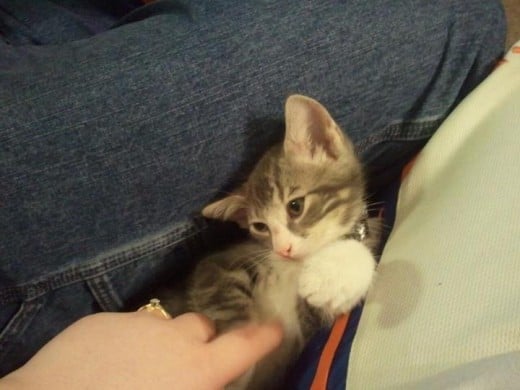
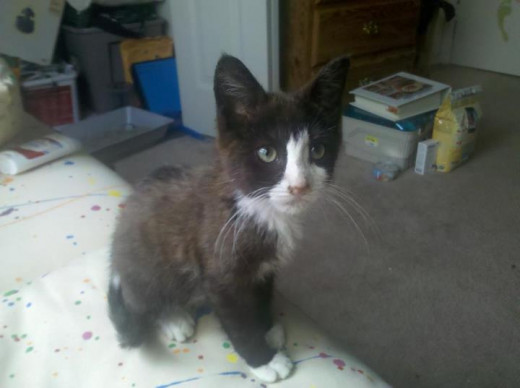
I hope that you enjoy your new kitten and take very good care of him/her!
Also, be sure that if your cat ever gets really bad sick, do not hesitate to take them to the vet. Make them as comfortable as possible and seek medical care asap.
My Kitty Alex.(First picture to the right) She's about 1 1/2 years old now. But I recently moved over 1,000 miles away and couldn't bring her along with me. So she is living with my grandmother where she can run around and play with other kitties. I miss her alot but I know she's doing just fine back at home.
Also, video below might have some cats that were in my other video, but some are not. Enjoy!
My newest kitty Watson (second picture)--->>
He had a bad cold when we got him. He was living in a barn and with the nights starting to get cold up here, he was getting sick. He wouldn't have made it through the winter if we didn't take him in. So as you can see in the picture, his nose is a little gross. The picture was taken on day 2 that we had him. I'll probably upload a new picture soon of how much better he looks.
It's been about 2 weeks now that we've had him and he's getting over his cold. We've been giving him daily medicine and giving him proper food and water. His fur is thicker and shinier, he's got a decent amount of weight on him and he's very active. :)
Don't get your cat declawed! Here's why...
- Declawing your Cat - Long Term Effects and Why You S...
Considering declawing your cat, or just interested on what happens when declawing? Read this hub and you'll learn how declawing works and why I believe you should NOT have it done.



